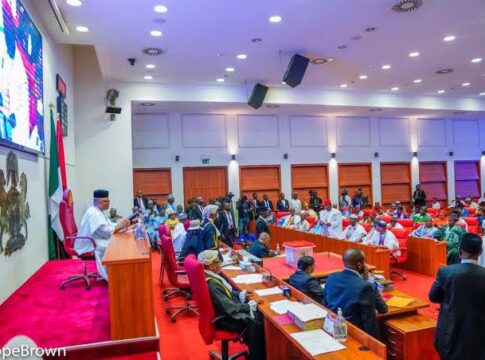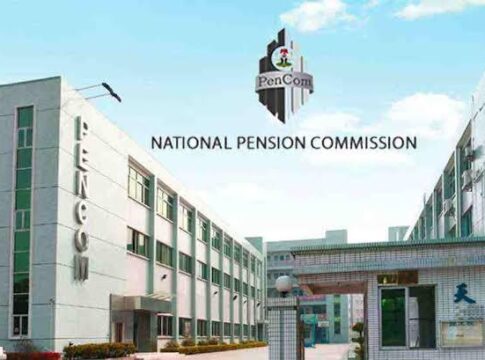Nigeria’s Senate has launched a two-day public hearing on proposed tax reform bills, aiming to overhaul outdated policies and improve revenue collection. The session, which began in Abuja, brings together top government officials, industry leaders, and economic stakeholders to shape the country’s fiscal future.
Senator Sani Musa, Chairman of the Senate Committee on Finance, emphasized the need for a transparent process that ensures fairness and sustainability. “This is about making our tax system work for everyone—businesses, investors, and the government,” Musa said. “We must modernize our laws to align with current economic realities and ensure stable revenue generation.”
Among those present are Finance Minister Wale Edun, Federal Inland Revenue Service (FIRS) Chairman Zacch Adedeji, and Nigerian National Petroleum Company Limited (NNPCL) Group CEO Mele Kyari. The Comptroller General of Customs, Adewale Adeniyi, and members of the Federal Executive Council also joined the discussions, highlighting the significance of the reforms.
Addressing Taxation Gaps
The hearing focuses on tackling key taxation challenges, including revenue leakages, policy inconsistencies, and tax evasion. According to FIRS data, Nigeria’s tax-to-GDP ratio stands at just 10.8%, far below the African average of 16.5%. Lawmakers aim to bridge this gap through streamlined policies that support business growth while ensuring government accountability.
The proposed reforms seek to eliminate double taxation, harmonize tax collection processes, and create an investor-friendly environment. “We need a tax system that encourages compliance rather than penalizes businesses with complexity,” Adedeji stated during the hearing.
READ MORE: Trump Unveils Plan for 25% Tariffs on Cars, Pharma, and Chips, Escalating Trade Tensions
Senator Musa urged the private sector, civil society, and the public to actively contribute to the discussions. “This is a collaborative effort,” he said. “The outcome of these reforms will determine the financial stability of our nation for years to come.”
A History of Controversy
The Tax Reform Bills, first introduced in 2024, faced strong resistance from northern governors, who labeled them “anti-democratic.” In December 2024, the Senate suspended discussions following widespread public backlash. The National Economic Council later intervened, calling for further consultations with the executive branch before resuming legislative action.
The current bills include the Joint Revenue Board of Nigeria (Establishment) Bill, the Nigeria Revenue Service (Establishment) Bill, and the Nigeria Tax Bill, 2024. If passed, the reforms could significantly impact businesses, foreign investment, and government revenue collection.
With Nigeria facing fiscal pressure amid declining oil revenues and increasing debt servicing costs, lawmakers stress that tax modernization is no longer optional—it’s essential. “This is about economic survival,” Musa concluded. “We either fix our tax system or risk long-term instability.”




